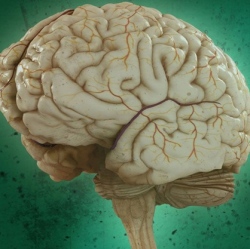
Scientists at Israel’s Ben-Gurion University of the Negev discovered a breakthrough treatment for amyotrophic lateral sclerosis (ALS) also known as Lou Gehrig’s disease, the university said Wednesday. ALS is a lethal, progressive neurodegenerative disorder that affects the motor nerve cells in both the brain and the spinal cord.
The progressive degeneration of motor neurons leads to atrophy, paralysis and eventually death due to failure of the respiratory muscles.
According to a press release, Dr. Rachel Lichtenstein was able to slow the progress of the disease. She stopped the increased activity of glial cells, which damage and kill the body’s motor neuron cells, thereby restoring the central nervous system’s immune defenses and increasing life expectancy.
“We found a way to thwart the glial cells from attacking and killing healthy brain cells,” Lichtenstein said.
She took part of an existing FDA-approved drug, used to treat certain autoimmune diseases and types of cancer, to create a new molecule to treat ALS.
“Our experimental results on ALS transgenic mice showed a significant increase in life expectancy,” Lichtenstein said. “Since the drug is already approved, we believe that we will only need limited preclinical testing to reach the clinical phase earlier than other initiatives.”
The university hopes that the new drug could also be used to treat a range of other degenerative brain diseases.
“This could also have major implications on the life expectancy of other neurodegenerative disease patients with Alzheimer’s and Parkinson’s,” said Dr. Ora Horovitz, senior vice president of business development at BGN Technologies, the university’s technology transfer company.
“Our new drug candidate may prove effective in boosting the self-cleansing mechanism of the human brain, thereby improving the lives of millions of people.”
The researchers are now seeking a pharmaceutical company partner.
There is currently no cure for ALS, and those affected usually die within a few years of diagnosis.
The disease is very rare, occurring on average in two new cases per 100,000 people every year, most typically among individuals aged between 55 and 65.
ALS hit headlines in 2014 with the “Ice Bucket Challenge,” which saw people upload videos of themselves to the internet pouring cold water over their heads in a bid to raise awareness. British physicist Stephen Hawking suffers from the disease.
